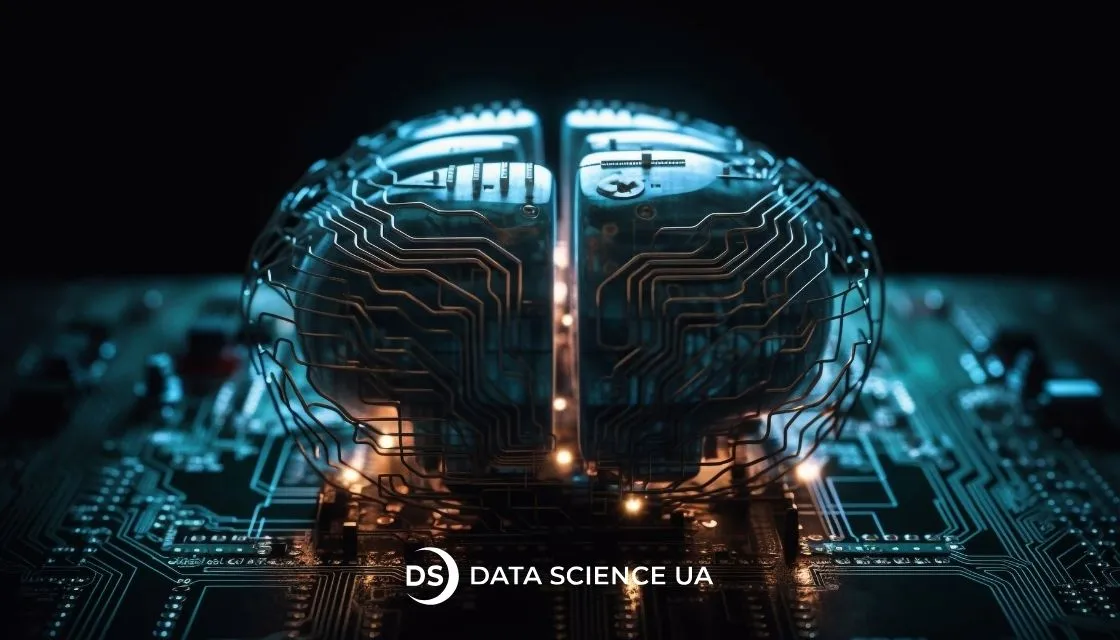AI in Healthcare Use Cases: Key Applications Revolutionizing Medicine
Understanding AI in Healthcare
AI is disrupting the healthcare sector with its series of innovative solutions that could go a long way in improving patients’ care, operational efficiencies, and quickening the pace of medical research. Harnessing big pools of data, AI technologies can support health professionals in diagnosing diseases, personalizing treatment, and streamlining administrative procedures. The article throws light upon major AI use cases in healthcare, demonstrating how these technologies are going to change the face of medicine.
AI use cases in healthcare are not hype but represent paradigm shifts that may redefine the understanding of medicine altogether. The ability to analyze complex datasets with swiftness and speed allows AI systems to provide insights necessary for more informed decisions among healthcare providers, thus often leading to better patient results. Additionally, AI promotes precision medicine, which is built on the individual characteristics, needs, and preferences of patients.
Key AI Use Cases in Healthcare
AI is making tremendous progress across a wide array of healthcare applications. Collaboration with an AI development services provider will help an organization identify the right tools and technologies suited to their needs.
Some of the most impactful AI in healthcare use cases:
Disease Diagnosis
AI algorithms are transforming medical diagnosis by analyzing medical data with speed and accuracy unattainable with the best of traditional methods. Machine learning models, for example, can sift through thousands of medical images in search of tumors in radiology scans. One case in point is Google’s DeepMind, which developed an AI system able to detect eye diseases that are as good or even better than expert ophthalmologists. Their system is capable of analyzing OCT scans that can facilitate the diagnosis of diabetic retinopathy and age-related macular degeneration in their early stages.
Moreover, IBM Watson Health has been used to help doctors diagnose cancer. It reads the medical literature and patient data to suggest diagnoses and treatments; this greatly reduces the time doctors have to spend doing research. This forms one of the important artificial intelligence use cases in healthcare.
Personalized Treatment Plans
AI makes it possible for healthcare providers to set up personalized treatment plans tailored according to individual patient requirements. By analyzing genetic data, lifestyle information, and ancient health records, AI determines the most effective therapies. For example, IBM Watson Health uses AI in treating cancer by helping oncologists with the selection of an appropriate personalized cancer therapy that best matches the genetic makeup of each particular patient.
Moreover, companies like Tempus use AI to analyze clinical and molecular data into actionable insights for personalized treatment. Their platform supports doctors in understanding the genetic reasons behind a patient’s cancer; this helps in administering personalized therapies that target the exact mutations. These examples have been great drivers of the importance of healthcare AI use cases in making care patient-centered.
Medical Record Management
AI simplifies managing EHRs by automating data entry and retrieval processes. NLP tools extract relevant information from unstructured data, which can help healthcare professionals get access to critical patient information on time. For instance, Google’s Cloud Healthcare API allows health organizations to easily manage records, making it easier for providers to access patient history and make informed care decisions.
Also, systems like Epic and Cerner are incorporating AI to enhance EHR usability; therefore, the recording and retrieving of patient information are bound to be much faster, enhancing clinician workflow.
Real-Time Patient Monitoring
Wearables enabled with AI can track the vital signs of patients and trigger warnings for healthcare experts upon observation of an anomaly. This can include tracking heart rates and oxygen saturation in blood using devices like Fitbit or smartwatches developed by Apple that monitor heartbeats, thereby offering potential notifications on abnormal rhythms essential action in many early intervention disorders such as atrial fibrillation.
Companies like Biofourmis use AI to analyze data from wearable sensors that track patients with chronic conditions and provide real-time insights to healthcare providers for proactive management of patient’s health.
 Image from Pexels (source)
Image from Pexels (source)
Drug Development
It improves the processes of drug discovery and development by analyzing a large volume of data in identifying potential drug candidates. Through predictive analysis of how various compounds can interact with biological systems, AI reduces the cost and time taken to get the drug into the market. AI at Atomwise model’s molecule interaction with higher velocity to find effective treatments faster.
Another prominent example is BenevolentAI, which uses artificial intelligence to analyze scientific literature and clinical data to find new drug candidates for a wide range of diseases. In 2020, the BenevolentAI platform identified a potential treatment for COVID-19, thus showing the rapid reaction of AI in this area.
Chatbots and Virtual Assistants
Artificial intelligence-powered chatbots and virtual assistants are increasingly empowering better patient–provider communication through their instant responses to medical queries. These AI healthcare use cases may answer general questions, appoint visits, and even dispatch medication alerts to patients. For example, the chatbot “Woebot” utilizes artificial intelligence as a means to deliver cognitive-behavioral strategies through its messaging interface.
On the other hand, Babylon Health is a health service that uses artificial intelligence through chatbots to carry out symptom checks and provide advice. With AI chatbot development company, patients can use the chatbot for initial consultations and recommendations based on their symptoms, thereby improving access to health services.
Robotic Surgery
Another area where artificial intelligence is having a great impact is robotic-assisted surgery. Such advanced systems have the capability to perform complicated surgical procedures with more accuracy and less invasiveness than the traditional methods. For instance, the da Vinci Surgical System allows surgeons to operate from a remote location with better visualization and maneuverability, therefore patients have much shorter recovery time.
Such systems as the Medtronic Hugo™ Robotic-assisted Surgery system enable surgeons to perform many minimally invasive procedures while simultaneously using real-time data analytics to improve patient outcomes.
Fraud Detection
AI in healthcare use cases extends to fraud detection. Analyzing billing patterns and patient data, AI algorithms can now pinpoint anomalies that may point to fraudulent activities. This saves a great deal for the organizations of healthcare while keeping them in compliance with regulations. For example, Optum uses AI to analyze claims data in support of fraud detection and prevention of fraudulent billing practices in order to protect healthcare resources.
Medical Image Analysis
AI is changing medical imaging into a more sophisticated form of analysis that would support radiologists in interpreting scans. The algorithms of AI can outline features in the images that might be skipped by the human eye, hence increasing the diagnostic precision. For instance, Zebra Medical Vision develops and supplies AI analysis for medical imaging data to diagnose conditions ranging from cardiovascular diseases to cancers.
Another example is Aidoc, an AI-powered company that analyzes radiology images in real-time to flag life-critical conditions such as hemorrhages and pulmonary embolisms for immediate attention by radiologists, which expedites patient care.
 Image from Pexels (source)
Image from Pexels (source)
How to Integrate AI Platforms into Healthcare Software, Websites, and Systems
Integrating AI into healthcare requires careful planning and execution. Here are the critical steps to successfully implement AI solutions:
Assessing Healthcare Needs
Before the actual implementation of AI, analysis of specific needs and challenges is necessary for any healthcare organization. This analysis helps identify those areas where AI can offer the most value, including operational efficiency or improved patient care. For example, it may be determined that a hospital needs to reduce wait times for patients, which in turn will lead to exploring healthcare use cases for AI technologies.
Choosing the Right AI Technology
The selection of appropriate AI technology is very important in ensuring seamless integration. Scalability, compatibility with existing systems, and the type of AI capabilities required for an organization’s healthcare applications must be considered.
Data Collection and Preparation
The training of different AI models requires high-quality data. This means healthcare providers have to ensure they possess accurate and comprehensive datasets. This might involve cleaning and organization of data or the development of new methods for data collection. For instance, introducing standards in data entry can increase the quality of EHR data, thus making it more suitable for AI analysis.
AI-Powered Feature Development
Once the relevant data is available, it is the right time to create AI-driven features. It can range from predictive modeling to creating chatbots for automating workflows that touch and improve the patient journey. For example, a hospital might create a predictive analytics model that predicts admission rates based on historical trends to inform staffing.
Ensure Data Privacy and Security
Data privacy and security are of utmost importance in the healthcare industry, and thus, stringent security measures are required to keep sensitive patient information confidential. Security measures in organizations and conformance to regulations like HIPAA are crucial. It involves data encryption, access controls, and regular security audits to reduce risks.
Integration with Existing Systems
AI solutions must be integrated with existing healthcare systems to ensure smooth operation. This requires a well-thought-out integration process in which new technologies complement current workflows without disrupting patient care. Integrating AI analytics tools into EHR systems, for example, can provide healthcare professionals with actionable insights without having to change platforms.
 Image from Pexels (source)
Image from Pexels (source)
Testing and Validating AI Models
Testing and validation of AI models have to be done thoroughly before deployment for their accuracy and reliability. Pilot programs should be carried out by healthcare organizations to assess the performance of AI solutions in real-world scenarios. This process can help identify any potential issues and ensure that the AI system meets clinical requirements.
Training Healthcare Professionals
Healthcare professionals need training to maximize the benefits of AI. Training should focus on understanding the capabilities of AI and how to interpret insights generated by AI. For instance, training sessions can help clinicians learn how to leverage AI tools for diagnostic support or treatment planning.
Monitoring and Continuous Improvement
Lastly, it is important that post implementation, organizations regularly monitor the performance of their AI systems. Regular assessments could reveal issues that may not perform optimally after all, while reassessment may be required periodically in time. For example, hospitals could implement feedback loops whereby healthcare providers could report their experience with AI solutions and recommend iterative improvements.
Regulatory Compliance and Standards
Finally, the AI solutions must be oriented to all the regulations and standards related to healthcare organizations. It is important to be in compliance to ensure patient trust and protect sensitive data. Legal and compliance experts should be involved during the development and deployment phases as they help organizations navigate regulatory requirements with ease.
Advantages of AI in Healthcare
AI into healthcare has several advantages that are fast revolutionizing the way care is provided and delivered, with overall improved outcomes.
Improved Diagnostic Accuracy
AI algorithms analyze complex medical data with unparalleled precision, often beyond human capability. This increased accuracy leads to earlier detection of diseases, reducing the risk of complications and improving patient outcomes. For example, studies have shown that AI can detect breast cancer in mammograms with a higher sensitivity than human radiologists, leading to earlier interventions.
Cost Savings
AI can also significantly help reduce costs by automating administrative tasks and improving operational efficiency. For example, AI-powered tools can reduce manual data entry time, freeing up health professionals to spend more time on patient care. According to Accenture, AI has the potential to save up to $150 billion for the U.S. healthcare economy annually by 2026 through efficiencies in administrative processes and improved care delivery.
Better Patient Engagement
Examples are chatbots and virtual assistants improving engagement through more timely information and support. This may lead to better patient communication, better treatment plan adherence, and overall higher satisfaction ratings. For example, health apps can use AI-driven reminders to help patients more effectively manage a chronic condition.
Faster Drug Development
With the help of data science development firm, pharmaceutical firms can bring new treatments to market faster. This speed helps not only the patients but also enables the organizations to stay competitive in the time-sensitive healthcare industry. Precisely, AI is being used to identify drug candidates for COVID-19; this has reduced the period of discovery and testing beyond imagination.
Improved Decision-Making
AI provides health professionals with the valuable insight needed for clinical decision-making. Analyzing vast amounts of data and spotting patterns, AI can support healthcare providers in informed choices on patient care. For example, AI-powered tools can review patient data for potential risk conditions, prompting early intervention to improve outcomes.
Ethical Issues and Challenges with Integrating AI into Health Care
Although AI has numerous benefits in healthcare, it also has several attendant ethical issues and challenges the organization should surmount.
Data Privacy and Security
Artificial intelligence brings with it significant concerns regarding data privacy and security. Organizations are forced to implement stringent measures to protect patient information and ensure adherence to relevant laws and regulations. Techniques such as encryption and anonymization can be used, for example, to secure sensitive data while simultaneously enabling meaningful analysis.
 Image from Pexels (source)
Image from Pexels (source)
Patient Consent and Autonomy
AI applications should respect patient autonomy and ensure that there are appropriate and informed practices using patients’ personal information. Any entity must get permission from the patients, after making them properly understand how to use their info in artificial intelligence applications. The benefits and risks arising from AI technologies will enable the patients to understand those with appropriate communication.
Ethical Use of Patient Data
Ethical use of data by AI applications is paramount. It is the responsibility of every healthcare organization to ensure that AI technologies are deployed responsibly and that information obtained from patients is not used for financial gains. Establishing ethical guidelines and setting up oversight committees can prevent possible ethical dilemmas.
The Future of AI in Medicine
The future of medicine with AI is bright, with new developments to come that would continue to improve patient care and operational efficiency. These applications will only continue to grow in health care as new AI technologies emerge, affording doctors more tailored and effective options for treating patients. Leading the next frontier in care for patients, AI integrates with other emerging technologies like telemedicine and genomics.
Moreover, the rise in AI-driven predictive analytics will enable health care providers to predict the needs and potential health crises of their patients and hence offer interventions in a timely manner that can save lives. Equally impressive is how AI can aid in public health efforts in terms of tracking disease outbreaks and management of population health.
Data Science UA AI Solutions for Healthcare Development
At Data Science UA, we are specialists in AI solutions development for healthcare. Our experts will find ways to provide machine learning development of unique value that would take a more modern turn regarding patients’ treatment and help processes run as efficiently as possible. From AI-assisted diagnosis to the personalization of treatment regimens, we aim to make revolutions in this area with technology. The spectrum of our services:
- Custom AI Development: Solution according to special requests.
- Data Analytics: Using AI to analyze vast datasets for actionable insights.
- Integration Services: Seamless integration of AI technologies with existing healthcare systems.
- Consulting: Expert consulting on best practices in the implementation of AI in healthcare.
More info here!
Final remarks
AI is changing healthcare: providing transformational solutions to improve the lives of patients and streamline efficiencies within operations. Understanding AI use cases for healthcare, integration processes, and basic ethical considerations will help organizations leverage all kinds of AI technologies with confidence to advance outcomes and innovation. In the coming years, the potential for AI healthcare use cases is endless, therefore ushering in a complete transformation in healthcare.
FAQ
How does AI help in hospital workflow optimization and resource management?
AI optimizes the general workflow of hospitals by automating administrative tasks, predicting patients’ admissions, and better resource management. Thus, AI can predict demands based on historical data analyses and thereby help in appropriate staff and equipment allocation, adding overall to operational efficiency.
Which are the major challenges healthcare organizations face in adopting this technology?
The key barriers are data privacy concerns, integration of systems, regulatory compliance, and the need to train health professionals in using new technologies. Besides, one would need to ensure that biases regarding AI algorithms are eliminated and fair and equitable care is assured.
Which are the major technologies driving innovation in AI for health?
Key technologies in leading AI innovation in healthcare are machine learning, natural language processing, computer vision, and robotics. The technologies can now support more advanced applications in improving diagnosis, treatment planning, and patient engagement. As we move further with AI ML use cases in healthcare, one thing becomes certain: these developments will shape the future of medicine.





